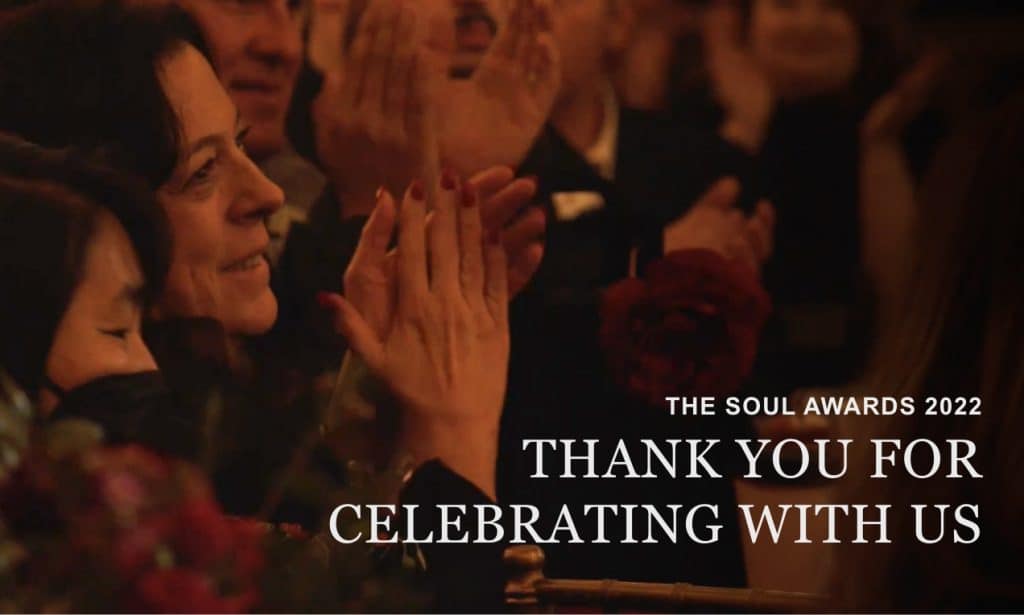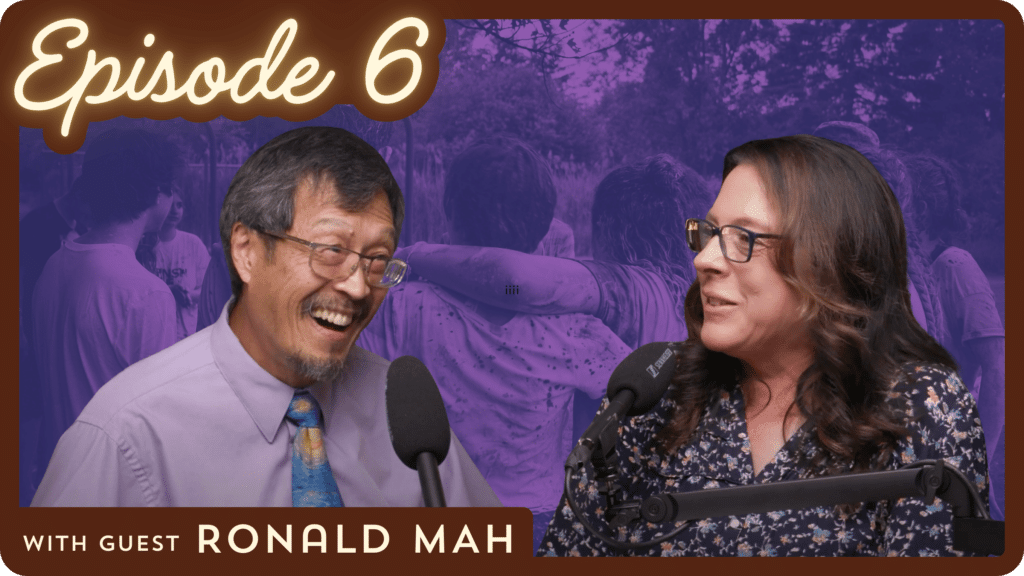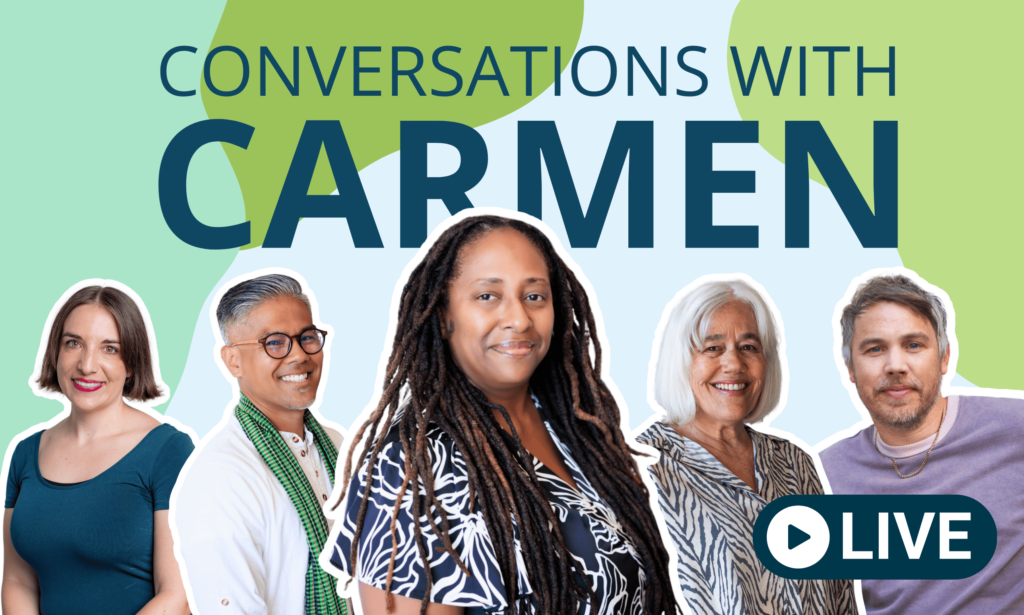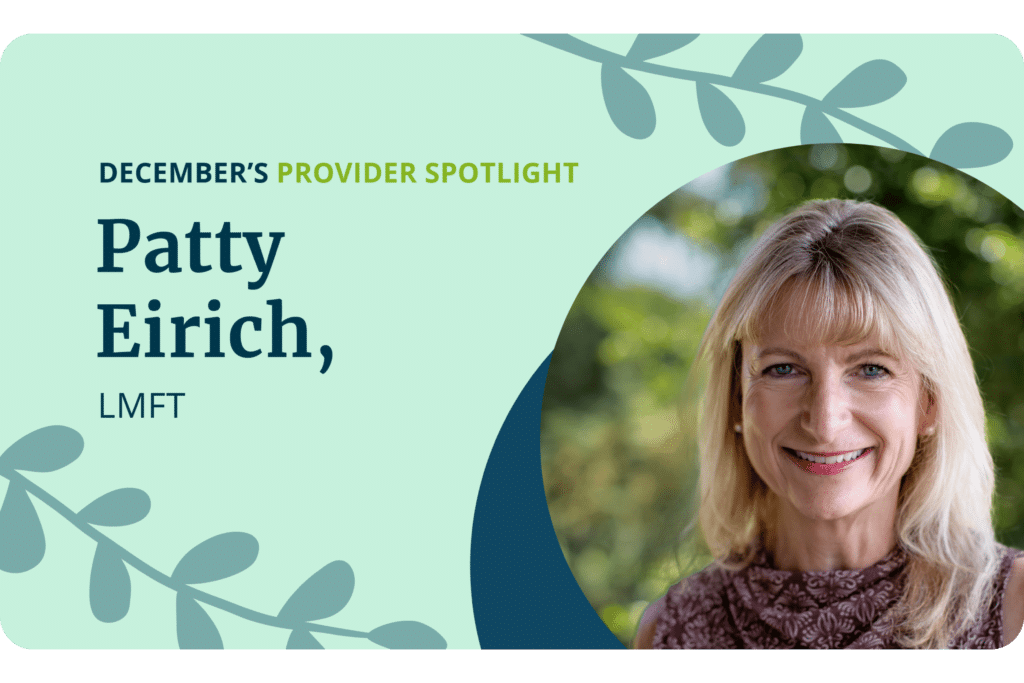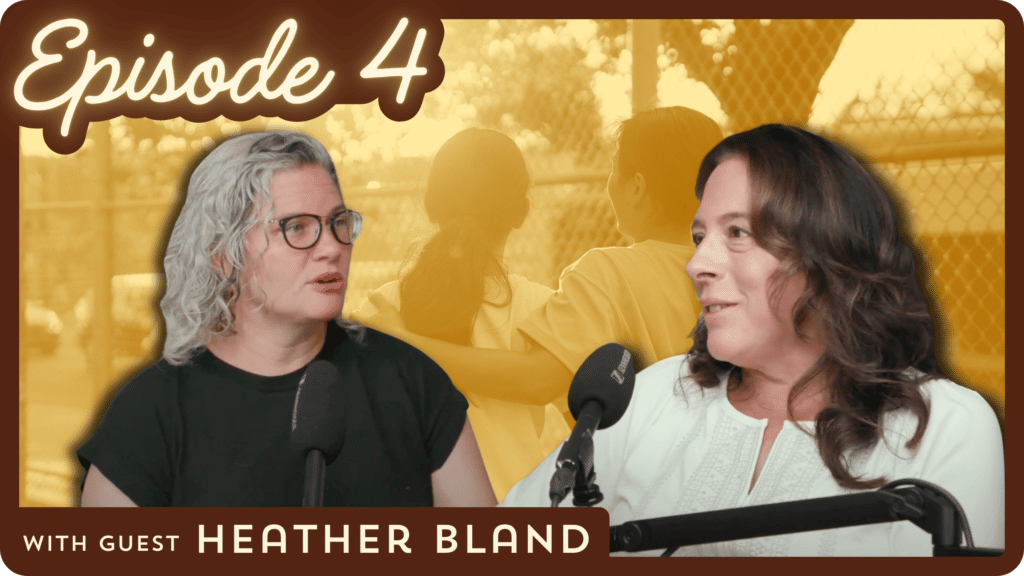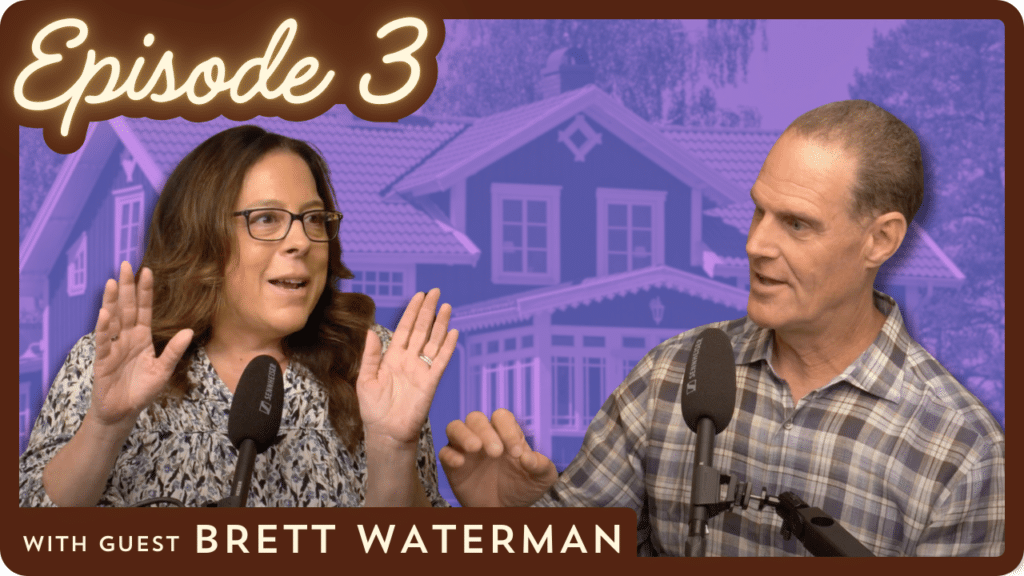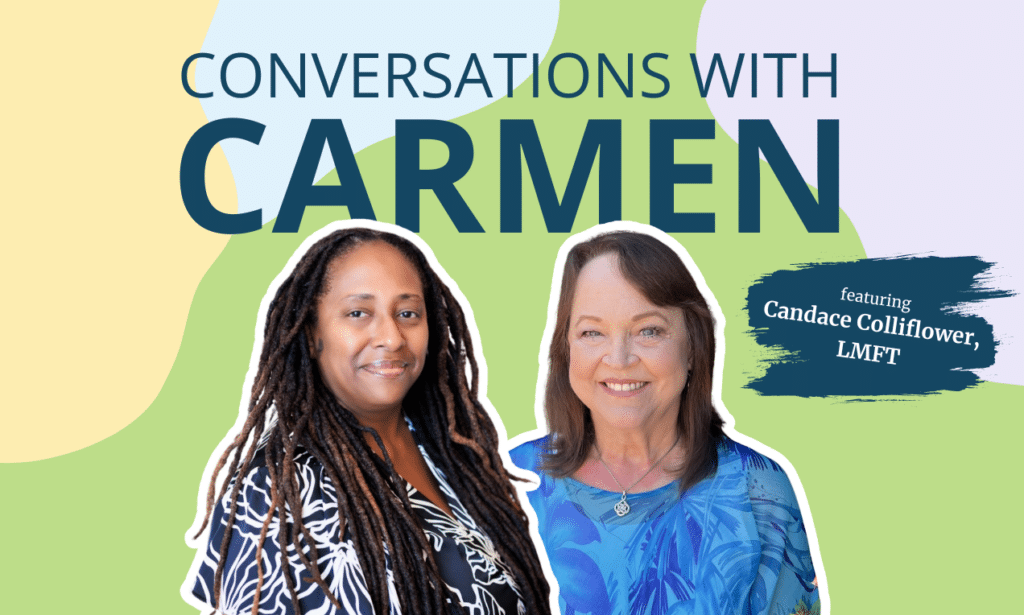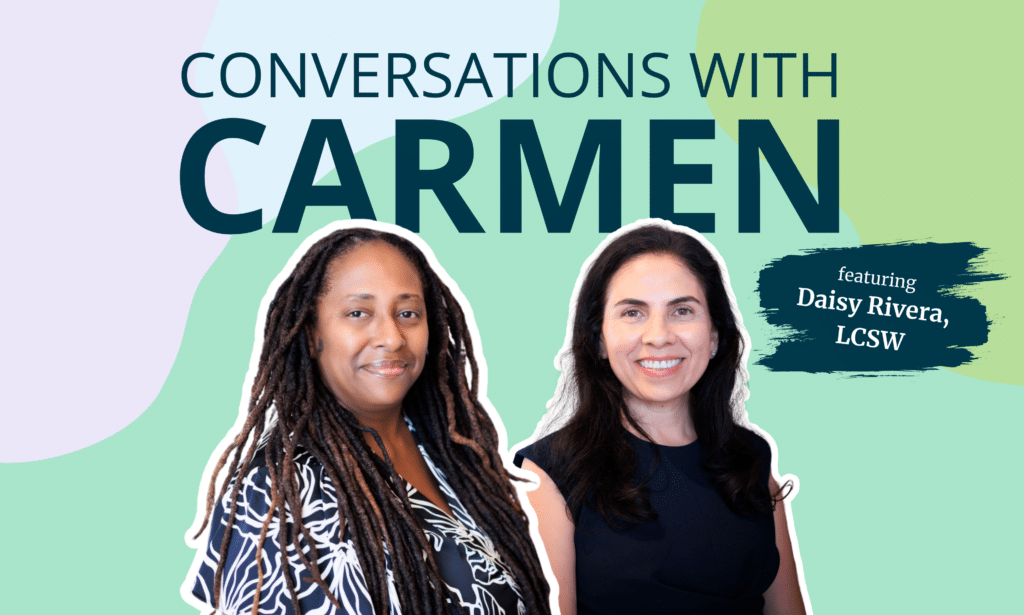
Introducing this month’s featured guest, Leslie Santana! Discover captivating insights into her unique experiences and inspiring stories related to her life and private practice by reading the interview below.
You shared that prior to becoming licensed, you completed your traineeship while working for the City of Chino. During your time there, you were one of a few Spanish speaking therapists who worked with clients from various third world countries who had been impacted by traumatic life events. What were one or two of your most noteworthy takeaways? Did resiliency factor into your clients’ respective healing journeys? How so?
During this work, I realized that people hurt other people and this was the source of trauma for a lot of individuals. A lot of my clients there came with a history of sexual, physical, and emotional abuse. Because of this, I learned that healing for them meant experiencing a healthy and safe relationship (aka me). People hurt people, so, healing needs to come from people as well.
Subsequent to completing your training hours at the City of Chino, you transitioned to a DMH (Department of Mental Health) contracted agency. During your time at Bienvenidos/Hillsides, you had the opportunity to not only continue pursuing your interest in working directly with Spanish speaking families, but you were able to obtain your training/certification in PCIT (Parent-Child Interaction Therapy). Given PCIT is an evidence-based treatment for young children, what are the therapeutic goals for this approach? From your perspective, who is PCIT most suitable for?
In PCIT, clients are ready for graduation when the parents show ability to use the parenting skills independently. Because of this, the focus is on helping parents learn to cope and manage challenging behaviors. The focus isn’t on the child’s problematic behavior per se but rather on the parent’s ability to manage the behaviors. PCIT includes tools that anyone can use because the tools promote basic communication skills. PCIT is most appropriate for parents who are struggling to connect with their young children (typically, ages 2-7).
When did you first realize that you wanted to pursue a career as a therapist? Did you initially have intentions of exploring another profession?
I wanted to become a nurse, but after volunteering at a local hospital, I started to notice that I really enjoyed getting to know the patients on a deeper and more personal level. I went on to pursue a Bachelors degree in Psychology and eventually applied to an MFT program. It was never a doubt in my mind after that.
You shared that you and your family have relocated a few times (since 2018) due to your husband’s career as a Marine. What would you say are some of the more inherent advantages and unique challenges that coincide with being a military family?
I can think of very little advantages (lol). Working in private practice, it has been a blessing to have all of my benefits covered by the military at no cost to us. I also think that I am able to work with other military clients with ease because I understand many of the different components of the military life. As a marine family, we move every 3 years, so, it is nearly impossible to settle my feet down at an agency or office. Working at Soultenders has removed this barrier for me. Other challenges include working through deployments and trainings.
You mentioned that you and your family relocated to North Carolina in late 2018. What was that move like for you? Did you experience uncertainty or was the transition met with enthusiasm? Or, a little of both?
It was a difficult adjustment at first because we went from living in a civilian city to a military town. The pandemic also made it extremely difficult to develop a support system out there. It was a bit of a shock arriving to a place where life was much slower in pace. In North Carolina, there is very little traffic and people live very slow and easy going lives. This was a nice concept that I continue to practice today. Once settled, we actually really grew fond of the seasons and beaches out there.
You shared that you worked for CPS (Child Protective Services while living in North Carolina). You also mentioned that chronic substance use/abuse and extreme poverty were two notable demographic factors. How did these components impact your experience as a clinician?
Working for CPS, in general, was a huge learning experience for me (professionally). I went from being a therapist (an ally) to a social worker (an enemy) in a way. I also realized how poverty and substance abuse really affect an individual’s ability to receive support and help. Most families with these two factors often needed a lot of support but also had less access to support. I think this just contributed to the ongoing cycle of substance use and poverty.
Your working relationship with Soultenders initially began in 2018; however, after a months long hiatus, you circled back in late 2019 and continued to focus on building your practice. What has your personal journey with Soultenders looked like? Have you evolved as a practice owner/provider? If so, in what way(s)?
The transition to Soultenders was the beginning of my life coming together in all aspects. Prior to Soultenders, my only goal was to complete my professional preparation. As a result of joining Soultenders, I was/am able to decide the type of therapist that I want to be and have the ability to take ownership of my practice. I was/am also able to figure out how to integrate my work into my life in a healthy and sustainable way.
You shared that you currently focus on trauma work in your practice. Can you please share how you incorporate EMDR as well as trauma focused PCIT into your work with clients?
I always use EMDR in one way or another in my practice. The way EMDR conceptualizes clinical cases is one of the best ways to look at the big picture. In EMDR, you are looking both at the present & past, the mind and the body, and the individual and the world. Trauma affects all of these areas. As far as conceptualization, EMDR has a lot to offer. I also use PCIT a lot, especially with children and families. PCIT focuses on the interaction between the child and the parent. It’s important to look at how the interaction between a child and a parent has left the child feeling extra vulnerable, unsafe, and insecure.
What are your thoughts on intersectionality? How does your perspective factor into your work with clients?
I think it’s important to highlight strengths with intersectionality as well as identify the challenges. Culture comes to mind when I think of this question. Alot of people that we work with come with a set of unique qualities about their story and the meaning they create often comes from cultural values. I think intersectionality is an important component in our work to assist clients in developing that full insight about their past present and future. Of course, there are challenges with intersectionality and this is also important to look at how each individual has integrated this in their understanding of the world.
You mentioned that you have an interest in building on your knowledge/understanding of how to efficaciously work with personality disordered clients. You referenced your “ability to build good rapport” as an inherent strength that enables you to potentially effect positive change with this population. What intrigues you about clients navigating personality disorders? What do you imagine your learning curve might entail?
I’m sure a lot of therapists can relate to this: I used to avoid working with difficult diagnoses. I felt very unprepared and stumped in my practice. This affected my eagerness to take on challenging clients. But, I naturally fell into working with clients exhibiting personality disorders and actually found it fascinating. Of course, with a lot of support, I have been able to do good work with these clients. I have learned that rapport is actually a very powerful thing with any client, but especially with those managing personality disorders. I’d love to get formal training in the near future. I’m not exactly sure what the learning curve will entail, but I imagine that difficulty building rapport might be one.
How do you find (and maintain) the balance in life given all of the moving parts (motherhood, career, military family lifestyle, just to name a few) involved? What does self-care look like to you?
Asking for help has been a huge contributor to having that balance. I try to nurture my relationships even though they are not perfect. I have had to re-learn how I talk to myself and I have to remember to always be kind to myself. Something I learned from life in the military is that everything is always temporary. This has helped me with coping with the ongoing challenges of managing it all. I feel like one day I will be able to return to my career without limitations but I will never be able to re-experience my children’s childhoods. I don’t have an exact self-care routine developed yet. I’m setting better boundaries with my time and energy.
For example, I try to do one thing at a time. If I’m nursing my child, I’m not reading emails or feeding my other little one.
In addition to being a trauma informed provider, you mentioned that you prefer to utilize a person-centered approach in your work. What does this look like?; sound like?; and possibly feel like to your clients?
Whatever my clients say is THEIR truth and therefore, my truth as well. I stay with that truth until that is no longer their truth. They are the experts in their life. So, I always try to understand that to the best of my ability.
From your perspective, what is the association between your clients engaging in meaningful conversation (in their therapy) and feeling personally empowered to effect desired changes in their lives?
I think it’s the connection that we have that helps with this change. The connection needs to be mutual and sometimes it’s hard to do this. We see so many clients sometimes that its hard to set yourself up for connection but that is understandable (at least I think it is). Sometimes at termination, I feel like all I did was listen and be kind to my clients. But, this is also sometimes all it takes.
Your viewpoint that: “mental health is not a destination, it’s a process; it’s about how you drive not where you’re going”- how does this translate for you in terms of joining, collaborating with and ultimately meeting your clients where they are?
I always try to visualize myself as someone who is temporarily joining my client’s life. I hop in the passenger seat with them and eventually I get off. They are the drivers and I have to respect that. This idea helps me ground myself in my role while also staying client-centered.
I’m aware that you are the CE Coordinator for Soultenders. That’s amazing! Can you share what the specifics of your role entail?
I am pretty much behind the scenes of our CE courses. I meet with the instructors from the very beginning and help them get to the finish line. Whatever I can help with, I do. Also, I am the middleman between Soultenders and the instructors. When facilitating a CE course, there is a set of steps that both the instructor and the team need to fulfill before an instructor can present their course. It has been fun and I’ve learned a lot along the way.
Is there anything else that you would like to share about yourself?
Not really, haha! Being a therapist and a mom/wife is my life!

